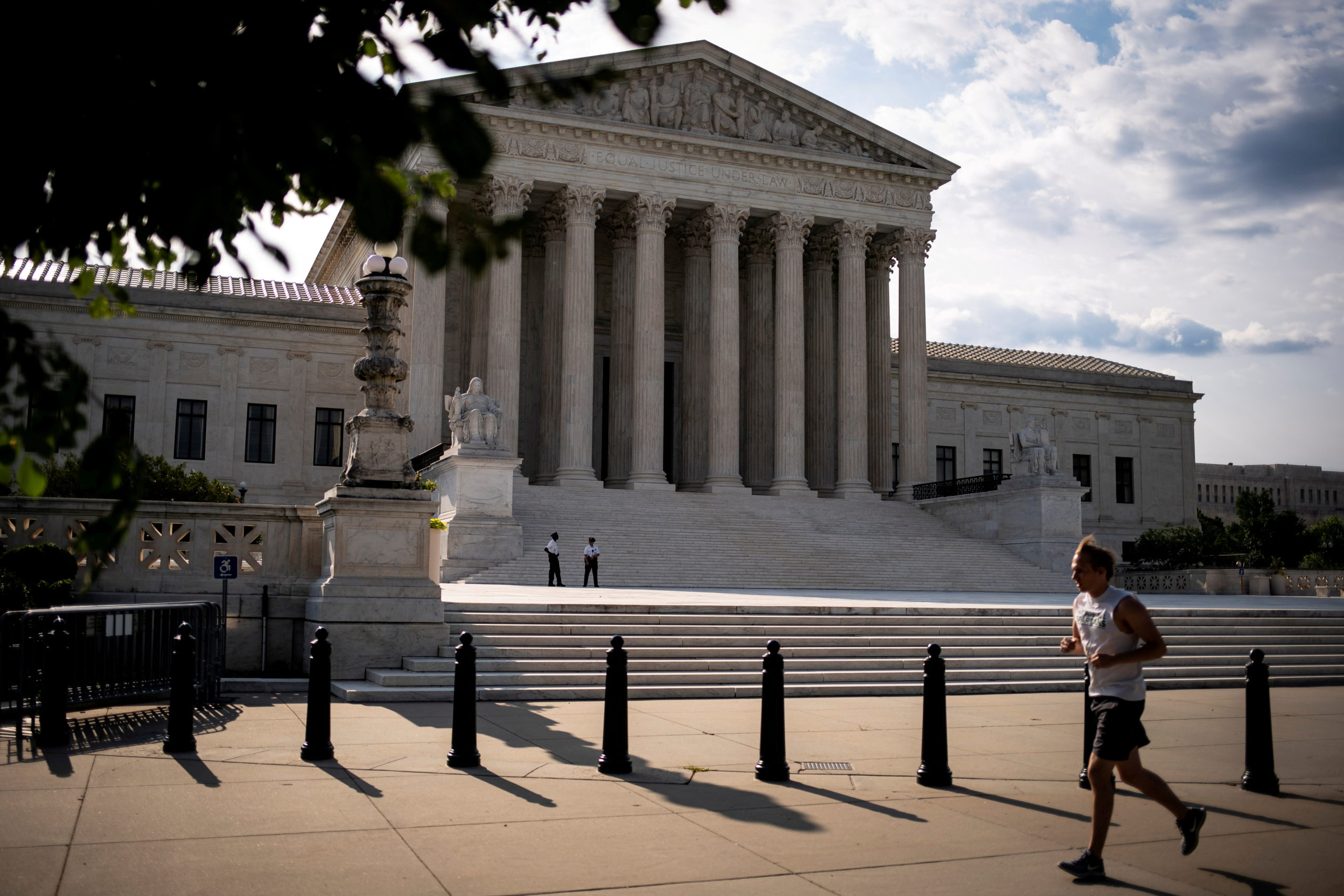US Supreme Court sympathetic to Alaska Native corps in COVID-19 aid dispute
The justices questions suggested they believed the corporations could receive coronavirus relief funds under the CARES Act.

WASHINGTON — U.S. Supreme Court justices on Monday signaled sympathy toward allowing federal COVID-19 relief funds to go to Alaska Native corporations, even though they are not officially recognized as tribal governments, in a case pitting Indigenous groups against each other.
The justices heard almost two hours of arguments in the case in which tribal groups are fighting over $8 billion in funding intended for tribal governments under the 2020 Coronavirus Aid, Relief and Economic Security Act, known as the CARES Act. About $533 million of that aid hinges on the case’s outcome.
Three groups of Native American tribes from other parts of the United States sued in federal court in Washington in April 2020 seeking to prevent what are known as Alaska Native corporations from receiving any of the funds. Among the challengers are the Navajo Nation, the Confederated Tribes of the Chehalis Reservation and the Cheyenne River Sioux Tribe.
[A fresh appeals court ruling excludes Alaska Native corporations from tribal COVID-19 aid]
The justices indicated support for the Alaska Native corporations and the federal government, which both argued that the corporations can receive the funding.
Justice Brett Kavanaugh told the challengers’ lawyer that “tens of thousands of Native Alaskans would be left out completely” if the court embraced his argument.
“Why are you treating Alaska Natives as kind of second class?” Kavanaugh asked.
The CARES Act said funds should be distributed to the “governing body of an Indian tribe” based on the definition described in a 1975 federal law called the Indian Self-Determination and Education Assistance Act, which does mention the Alaska corporations.
Some of the justices seemed to agree with the government’s position that this definition, although written poorly, lets corporations participate in government programs even though they are not federally recognized tribes.
Justice Elena Kagan noted that although the statutory language is badly phrased, there did not seem to be a plausible alternative interpretation.
“The question is whether there really is another conceivable meaning here,” Kagan said.
The U.S. Court of Appeals for the District of Columbia Circuit last year reversed a lower court’s ruling that had favored the federal government and the corporations, prompting the appeal to the Supreme Court.
The corporations were created under a 1971 federal law that sought to address land claims and provide economic benefits to Alaska Natives without allocating land to tribal governments. Federal funding and land, including mineral rights, were given to the new regional corporations.
In the years since they were founded, Alaska Native corporations have become successful and diversified businesses with interests in such areas as oil and gas drilling, real estate and construction. In 2017, they had a combined revenue for $9.1 billion. The corporations also provide various social services for Alaska Natives.